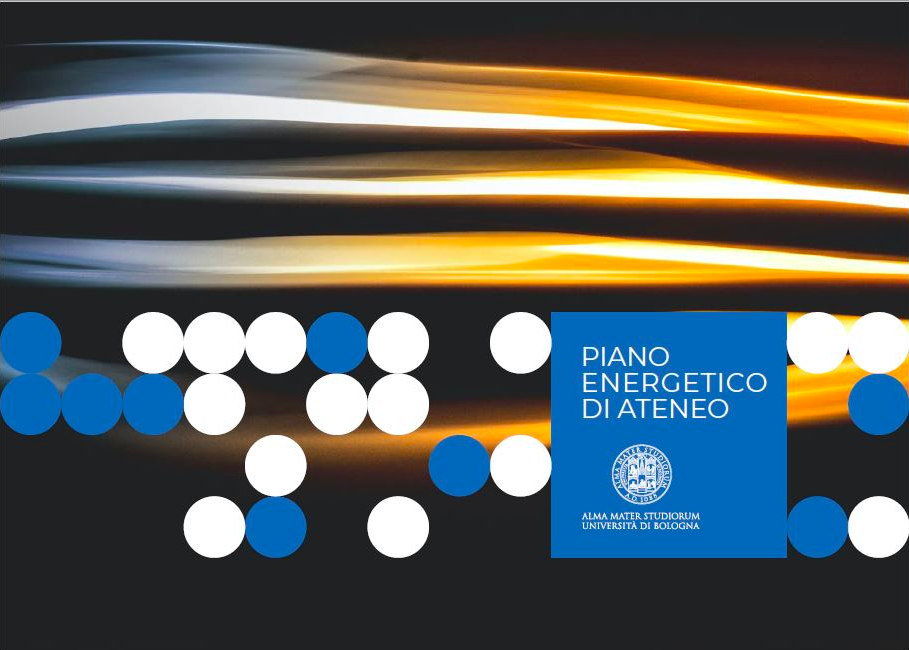The Energy Plan of the University of Bologna is the document through which our University defines the intervention strategies to promote efficient energy use and enhance the social, economic, and environmental sustainability of our activities.

The main objective of the Energy Plan is to reduce unit energy expenditure by increasing the efficiency of the systems and enhancing self-production of energy from renewable sources.
The Plan outlines a series of actions capable of improving the efficiency with which the University of Bologna utilizes energy in its final uses and making the energy footprint of university activities more environmentally sustainable.
The full implementation of the Energy Plan will be able to achieve significant objectives by 2030:
- stabilizing electrical consumption at values not exceeding the average of recent years even with the electrification of heating
- stabilizing annual electrical consumption per unit of surface area while extending the use of electricity for heating services through the introduction of heat pump systems
- reducing natural gas consumption
- increasing the coverage of energy consumption through renewable sources
- increasing self-production of electricity from photovoltaics
- halving the consumption of non-renewable primary energy
- reducing atmospheric greenhouse gas emissions by more than 50%.
In the top menu you can find the individual sections comprising the University Energy Plan.
On this page you can consult the complete document.